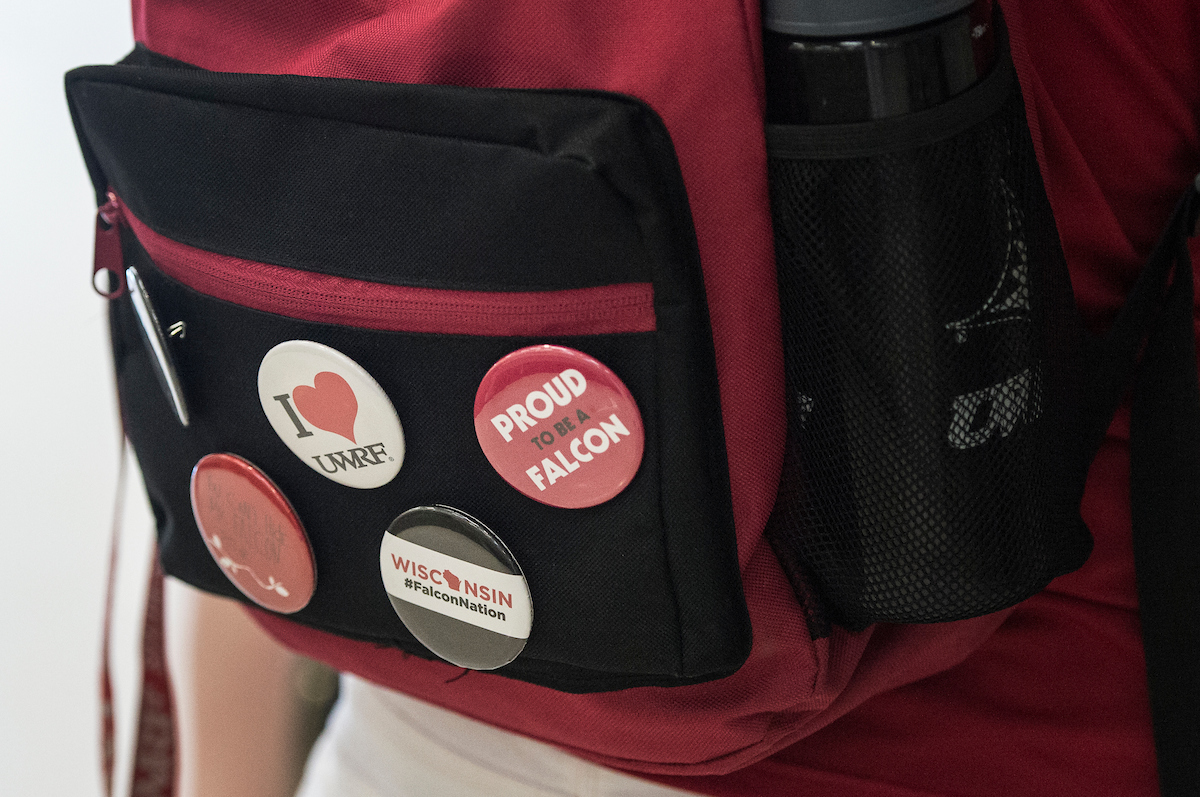UNIVERSITY OF WISCONSIN River Falls
First Year Student Blog
Financial tips and FAFSA
No matter how you frame it, conversations about money are hard. Paying for college can be stressful, even without the complications of figuring out financial aid, filling out the FAFSA and all of the intricate details that go along with a college education. Despite challenges that may come your way, there are steps you can take to make the process a little easier. In addition to working with the Financial Aid Office to determine the best financial action plan for you, check out some of these tips for managing money.
1. Create a budget. You don’t need to have large amounts of money to make a budget. Even with small amounts of money, it is useful to see how to break down your spending habits and map out plans for saving. There are plenty of great resources online for budgeting as a student. Here’s one site you can use to get started.
2. Minimize debt as much as possible. Look at your personal financial situation and figure out what is best for you. Borrow only what is necessary and only spend what you borrow on what is required, no extras. Before you commit to a lender, be sure to do your research for the best interest rates and terms. If you have any questions about this process, schedule an appointment with an on-campus Financial Aid Counselor

3. Apply for scholarships. Apply early and apply regularly. A lot of scholarship funds are limited, so applying early can really pay off (literally). Many UWRF scholarships can be applied for with one general application found here and can be submitted as early as October 1 for the 2019-20 school year. In addition, there may be other scholarships that may be specific to your circumstances. Be sure to apply for those as well!
4. Fund social expenses with a part-time job. You don’t want to use loan money for social expenses. There are so many creative, free or cheap ways to have fun in River Falls. From going to on-campus events, to hanging out and playing games with friends, you can have a great time spending little to nothing. Try to put any additional funds you may earn into a savings account to cover any unexpected expenses, or even use it to start paying back student loans. You’ll thank yourself later.

5. Utilize student discounts. Many businesses offer awesome student discounts every day. Numerous local and corporate operations offer great discounts ranging from five percent or a couple bucks off a service. This may not sound like much, but when you are already paying for that service, that money saved can really add up! It never hurts to ask if a business offers a student discount.
6. Set monthly spending limits. Look at your monthly income and determine what amount you need to save, and what amount you want to have available to spend. Set realistic limits to help you achieve financial success without breaking the bank while you’re in school. Determine what your boundaries are for social activities like eating out, going out to the movies, buying new games, or whatever you may do for fun. Having a monthly “for fun” budget can help you do some or all of these things, while still putting money aside for loan payments or saving for that apartment you want. It may seem a little tedious at first, but if you stick to it, it will be beneficial in the long run.
7. Apply for the FAFSA. Even if you think you aren’t eligible for aid, you may be surprised at what you may qualify for! Many scholarship applications also require you to apply for the FAFSA. It seems complicated but doing your research beforehand and being prepared before you start the application make the process much smoother. There is plenty of information available online and on campus that can help you with the process of applying. Applications for the 2019-20 school year started October 1 at www.FAFSA.gov. You can also read up on some useful FAFSA tips here!












